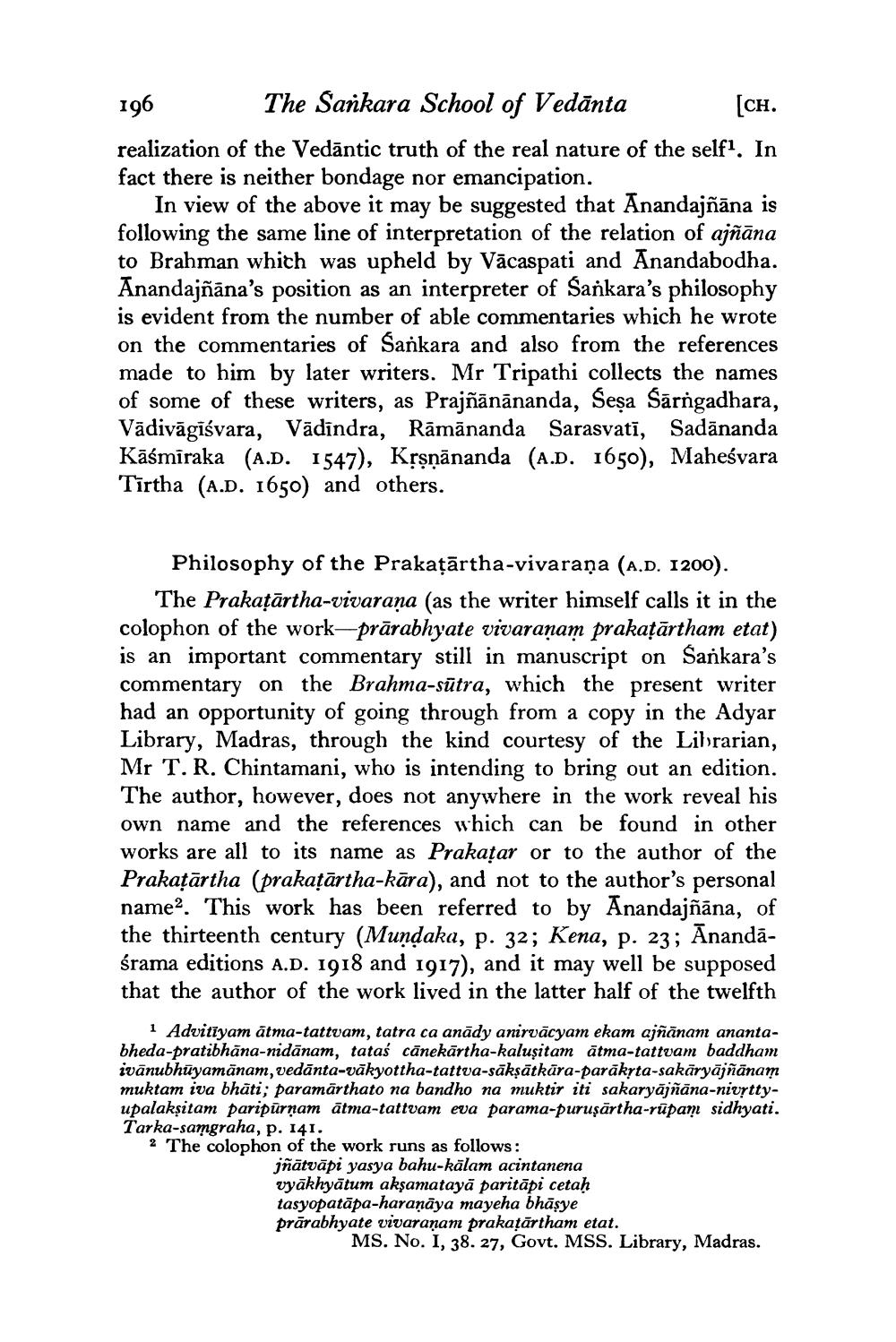________________
196
The Sankara School of Vedānta [CH. realization of the Vedāntic truth of the real nature of the selfi. In fact there is neither bondage nor emancipation.
In view of the above it may be suggested that Anandajñāna is following the same line of interpretation of the relation of ajñāna to Brahman which was upheld by Vācaspati and Anandabodha. Anandajñāna's position as an interpreter of Sankara's philosophy is evident from the number of able commentaries which he wrote on the commentaries of Sankara and also from the references made to him by later writers. Mr Tripathi collects the names of some of these writers, as Prajñānānanda, Seșa Sārngadhara, Vādivāgīśvara, Vādīndra, Rāmānanda Sarasvatī, Sadānanda Kāśmīraka (A.D. 1547), Krşņānanda (A.D. 1650), Maheśvara Tīrtha (A.D. 1650) and others.
Philosophy of the Prakațārtha-vivaraña (A.D. 1200).
The Prakațārtha-vivaraña (as the writer himself calls it in the colophon of the work-prārabhyate vivaranam prakațārtham etat) is an important commentary still in manuscript on Sankara's commentary on the Brahma-sūtra, which the present writer had an opportunity of going through from a copy in the Adyar Library, Madras, through the kind courtesy of the Librarian, Mr T.R. Chintamani, who is intending to bring out an edition. The author, however, does not anywhere in the work reveal his own name and the references which can be found in other works are all to its name as Prakațar or to the author of the Prakațārtha (prakațārtha-kāra), and not to the author's personal name?. This work has been referred to by Anandajñāna, of the thirteenth century (Mundaka, p. 32; Kena, p. 23; Ānandāśrama editions A.D. 1918 and 1917), and it may well be supposed that the author of the work lived in the latter half of the twelfth
1 Advitiyam ātma-tattvam, tatra ca anādy anirvācyam ekam ajñānam anantabheda-pratibhāna-nidānam, tataś cānekārtha-kaluşitam ātma-tattvam baddham ivānubhūyamānam, vedānta-vākyottha-tattua-sākşātkāra-parākta-sakāryājñānam muktam iva bhāti; paramārthato na bandho na muktir iti sakaryājñāna-nivsttyupalaksitam paripurnam ātma-tattvam eva parama-puruşārtha-rūpam sidhyati. Tarka-samgraha, p. 141. 2 The colophon of the work runs as follows:
jñātvāpi yasya bahu-kālam acintanena vyākhyātum akşamatayā paritāpi cetah tasyopatāpa-haranāya mayeha bhāşye prārabhyate vivaranan prakațārtham etat.
MS. No. I, 38. 27, Govt. MSS. Library, Madras.




